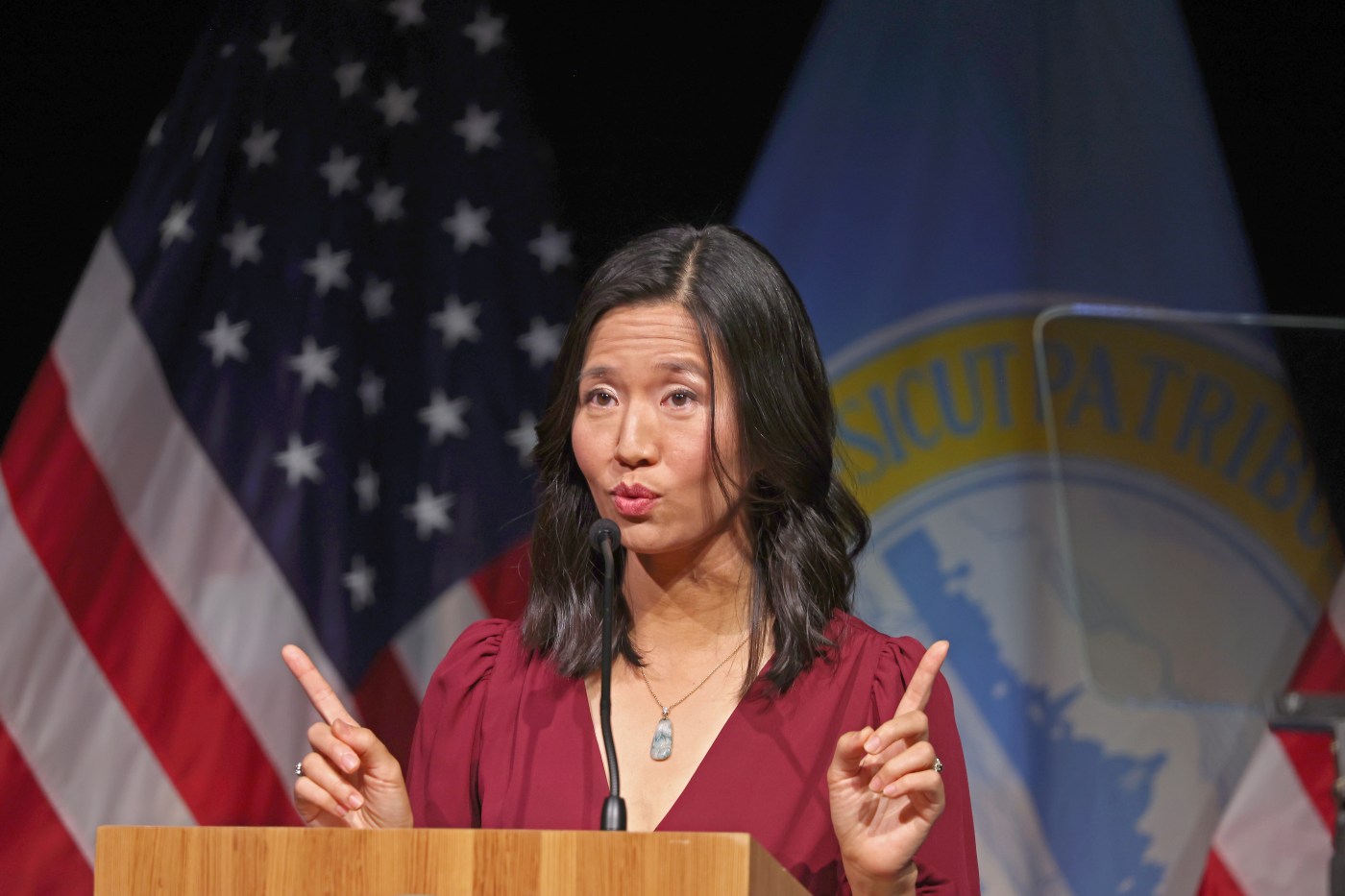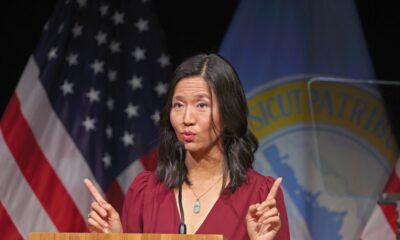Education
Mayor Wu’s State of the Schools Address Raises Concerns

Boston’s education system faces significant challenges despite Mayor Michelle Wu‘s optimistic State of the Schools address delivered on March 5, 2024. While the mayor highlighted various initiatives aimed at fostering innovation, equity, and modern educational practices, many observers believe that mere rhetoric cannot resolve critical issues, such as overcrowded classrooms and teacher shortages.
During her address, Mayor Wu outlined numerous programs designed to enhance educational outcomes. However, the absence of specific timelines and accountability measures raises questions about the feasibility of these initiatives. As schools struggle with longstanding inequities, the need for immediate action is paramount.
As noted by Cheryl Buckman, a Boston Public Schools activist and parent leader at Dever Elementary School, “Boston’s students cannot wait for ‘future-ready’ programs while classrooms remain under-resourced.” The sentiment reflects a growing impatience among parents and educators who are keenly aware that words alone will not suffice.
### The Urgency of Accountability
Budget transparency was another significant concern during the address. While Mayor Wu discussed “more funding,” details regarding its allocation and the direct impact on student learning were notably lacking. Families, as Buckman points out, deserve clarity rather than generic slogans. Without a clear and measurable plan, the city risks perpetuating a cycle of ambitious speeches followed by minimal change.
Equity was prominently featured in the mayor’s speech, with an emphasis on programs targeted at underserved communities. Yet, meaningful progress in addressing systemic disparities requires more than gradual efforts. It necessitates bold, sustained action to create lasting change.
Despite these criticisms, there were positive aspects to the address. The focus on mental health, innovative curricula, and climate-ready schools indicates an awareness of the complex needs facing today’s educational landscape. Yet, as Buckman stresses, these intentions must translate into tangible actions.
### Moving Beyond Promises
The State of the Schools address should serve as a call to action rather than a moment of celebration. Boston’s educational community—comprising students, teachers, and parents—requires concrete results, not just a vision for the future.
As Boston strives to be a leader in education, the need for bold action, clear accountability, and immediate investment becomes increasingly urgent. Stakeholders expect more than speeches; they seek a commitment to fight for a better future for all students.
In conclusion, if Mayor Wu aims to transform words into meaningful outcomes, it is essential to prioritize actionable initiatives that can address the pressing needs of Boston’s schools. Anything less would represent a setback that the city’s children cannot afford.
-

 Technology4 months ago
Technology4 months agoDiscover the Top 10 Calorie Counting Apps of 2025
-

 Health2 months ago
Health2 months agoBella Hadid Shares Health Update After Treatment for Lyme Disease
-

 Health3 months ago
Health3 months agoErin Bates Shares Recovery Update Following Sepsis Complications
-

 Technology3 weeks ago
Technology3 weeks agoDiscover 2025’s Top GPUs for Exceptional 4K Gaming Performance
-

 Technology4 months ago
Technology4 months agoDiscover How to Reverse Image Search Using ChatGPT Effortlessly
-

 Technology2 months ago
Technology2 months agoElectric Moto Influencer Surronster Arrested in Tijuana
-

 Technology4 months ago
Technology4 months agoMeta Initiates $60B AI Data Center Expansion, Starting in Ohio
-

 Technology4 months ago
Technology4 months agoRecovering a Suspended TikTok Account: A Step-by-Step Guide
-

 Health4 months ago
Health4 months agoTested: Rab Firewall Mountain Jacket Survives Harsh Conditions
-

 Lifestyle4 months ago
Lifestyle4 months agoBelton Family Reunites After Daughter Survives Hill Country Floods
-

 Technology3 months ago
Technology3 months agoUncovering the Top Five Most Challenging Motorcycles to Ride
-

 Technology4 weeks ago
Technology4 weeks agoDiscover the Best Wireless Earbuds for Every Lifestyle





















